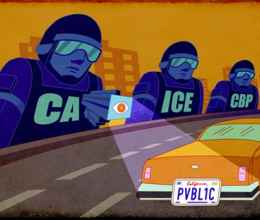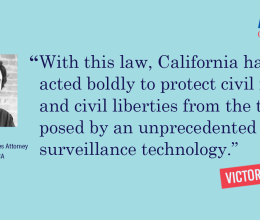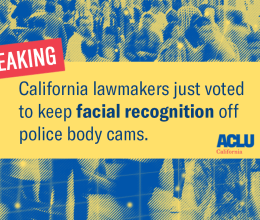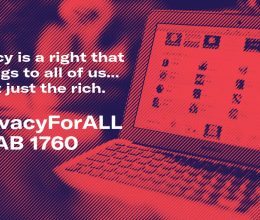FOR IMMEDIATE RELEASE April 5, 2019 CONTACT: Edward Sifuentes esifuentes@aclusandiego.org (619) 501-3408
SAN DIEGO – Today, the ACLU Foundation of San Diego & Imperial Counties (ACLUF-SDIC) submitted an amicus brief in the case of a southeastern San Diego man seeking to remove his name from the state’s CalGang database. The database, which documents and tracks gang members, is notorious for errors. Until recently, people could be added to the database without their knowledge or a process to clear their names.
Tyrone Simmons, who is represented by attorney Danielle Iredale, of the Law Offices of Danielle Iredale, and Suzy Marinkovich and Ben Kagel, of Morrison & Foerster LLP, filed the lawsuit against the City of San Diego seeking to remove his name from the CalGang database under a process created by Assembly Bill 2298. He is one of the first people to challenge his CalGang designation under this law.
“The ACLU has a longstanding commitment to ensuring due process in gang designation cases. AB 2298 has the potential to help prevent erroneous listings and bring light to the removal process. We’re filing this amicus brief to support Mr. Simmons and his legal team and to inform the public about the new law,” said Jonathan Markovitz, a staff attorney with the ACLUF-SDIC.
AB 2298 was enacted in 2016 after the California State Auditor issued a report on the error-prone CalGang database. Among other things, the audit found that people of color are vastly more likely to be included in the database relative to their percentage of the population. It also documented serious problems with CalGang’s designation procedures. Most notably, the audit found that dozens of infants were entered into the database after “admitting to being gang members.”
Despite these errors, the CalGang database has been used for employment and military-related screenings. Courts have also relied on the database to provide support for expert opinions about gang membership.
By enacting AB 2298, the state lawmakers clearly acknowledged the harm a false CalGang designation can have on a person and sent a message that it had taken measures to ensure that law enforcement agencies could not inflict that damage on anyone without good reason. In Mr. Simmons’ case, the trial court made a series of rulings that prevented him from receiving a fair hearing. His appeal can help to ensure that courts will hold law enforcement to account and provide real opportunities for people to challenge erroneous gang designations.
###






